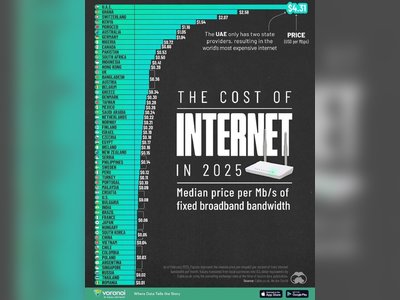Manila Times
Upholding Truth. Empowering the Philippines
Tuesday, Oct 07, 2025
The Nation's Story is Told with Honor
Karl Chua's Data-Driven Transformation at Ayala Corp.
The former finance undersecretary now heads the conglomerate's initiatives in artificial intelligence and data science.
Karl Kendrick Chua, once recognized as the "poster boy of tax reform" for leading the Philippines’ significant fiscal overhaul, has assumed a new role as managing director and group head for data science and AI at Ayala Corporation.
In this capacity, Chua leverages his extensive experience in public service—having served as undersecretary in the Department of Finance and later as the chief economist at the National Economic and Development Authority during the Covid-19 pandemic—to drive digital transformation within one of the country’s most influential business groups.
Chua’s mission at Ayala involves evolving the organization into a data- and AI-driven enterprise, focusing on enhancing customer service and business operations.
Under his leadership, Ayala Analytics has been established to create the necessary technology infrastructure, governance framework, and cultural shift to integrate data and AI across its diverse business units, which include banking, telecommunications, fintech, real estate, healthcare, and renewable energy.
Chua places particular emphasis on three progressive layers within Ayala’s AI strategy: defending the digital infrastructure, extending current business processes through AI tools, and ultimately, upending existing models to create new products or services.
For instance, initiatives like GCash’s GScore illustrate how AI can expand credit access while maintaining low default rates.
Chua regards AI as a functional tool for improvement, stating its integration into business practices is essential for enhancing customer services and organizational capabilities.
To manage the transition, Chua is focusing on a comprehensive reskilling initiative throughout Ayala Group, which encompasses workshops, newsletters, and courses designed to ensure staff at all levels are equipped to utilize AI effectively and ethically.
He acknowledges the potential displacement of jobs due to automation but stresses the importance of equipping employees with AI-related skills for future roles.
In his approach to AI, Chua aims to address systemic inequalities in Filipino society.
He points out how the Covid-19 pandemic exacerbated disparities in education and income, making it critical to provide equal opportunities for success.
Proposed solutions include digitally enhancing government services to streamline citizen interactions, optimizing public transport, employing drones for agriculture, and ensuring connectivity in underserved areas.
Chua is also working towards the development of smart, sustainable cities.
He envisions integrated urban systems that leverage AI for better connectivity, sustainability, and efficiency.
Collaborations with institutions like the National University of Singapore (NUS) aim to refine AI governance frameworks and ethical practices in technology deployment.
In education, Chua underscores the importance of nurturing future talent through partnerships with academic institutions, particularly in AI programs.
Ayala Corp. supports initiatives that provide internships and research opportunities, contributing to the broader goal of national development.
As he transitions from public policymaking to corporate innovation, Chua’s vision reflects a commitment to harnessing technology for societal benefit alongside achieving corporate objectives.
His integrated approach highlights the potential of data science and AI in transforming business landscapes and improving quality of life across the Philippines.
In this capacity, Chua leverages his extensive experience in public service—having served as undersecretary in the Department of Finance and later as the chief economist at the National Economic and Development Authority during the Covid-19 pandemic—to drive digital transformation within one of the country’s most influential business groups.
Chua’s mission at Ayala involves evolving the organization into a data- and AI-driven enterprise, focusing on enhancing customer service and business operations.
Under his leadership, Ayala Analytics has been established to create the necessary technology infrastructure, governance framework, and cultural shift to integrate data and AI across its diverse business units, which include banking, telecommunications, fintech, real estate, healthcare, and renewable energy.
Chua places particular emphasis on three progressive layers within Ayala’s AI strategy: defending the digital infrastructure, extending current business processes through AI tools, and ultimately, upending existing models to create new products or services.
For instance, initiatives like GCash’s GScore illustrate how AI can expand credit access while maintaining low default rates.
Chua regards AI as a functional tool for improvement, stating its integration into business practices is essential for enhancing customer services and organizational capabilities.
To manage the transition, Chua is focusing on a comprehensive reskilling initiative throughout Ayala Group, which encompasses workshops, newsletters, and courses designed to ensure staff at all levels are equipped to utilize AI effectively and ethically.
He acknowledges the potential displacement of jobs due to automation but stresses the importance of equipping employees with AI-related skills for future roles.
In his approach to AI, Chua aims to address systemic inequalities in Filipino society.
He points out how the Covid-19 pandemic exacerbated disparities in education and income, making it critical to provide equal opportunities for success.
Proposed solutions include digitally enhancing government services to streamline citizen interactions, optimizing public transport, employing drones for agriculture, and ensuring connectivity in underserved areas.
Chua is also working towards the development of smart, sustainable cities.
He envisions integrated urban systems that leverage AI for better connectivity, sustainability, and efficiency.
Collaborations with institutions like the National University of Singapore (NUS) aim to refine AI governance frameworks and ethical practices in technology deployment.
In education, Chua underscores the importance of nurturing future talent through partnerships with academic institutions, particularly in AI programs.
Ayala Corp. supports initiatives that provide internships and research opportunities, contributing to the broader goal of national development.
As he transitions from public policymaking to corporate innovation, Chua’s vision reflects a commitment to harnessing technology for societal benefit alongside achieving corporate objectives.
His integrated approach highlights the potential of data science and AI in transforming business landscapes and improving quality of life across the Philippines.
AI Disclaimer: An advanced artificial intelligence (AI) system generated the content of this page on its own. This innovative technology conducts extensive research from a variety of reliable sources, performs rigorous fact-checking and verification, cleans up and balances biased or manipulated content, and presents a minimal factual summary that is just enough yet essential for you to function as an informed and educated citizen. Please keep in mind, however, that this system is an evolving technology, and as a result, the article may contain accidental inaccuracies or errors. We urge you to help us improve our site by reporting any inaccuracies you find using the "Contact Us" link at the bottom of this page. Your helpful feedback helps us improve our system and deliver more precise content. When you find an article of interest here, please look for the full and extensive coverage of this topic in traditional news sources, as they are written by professional journalists that we try to support, not replace. We appreciate your understanding and assistance.











